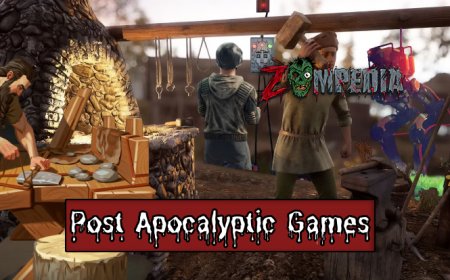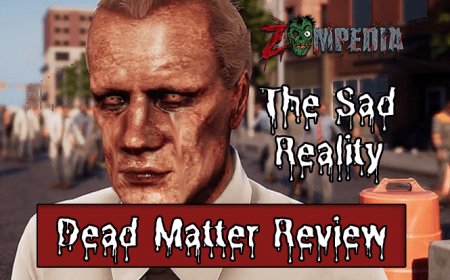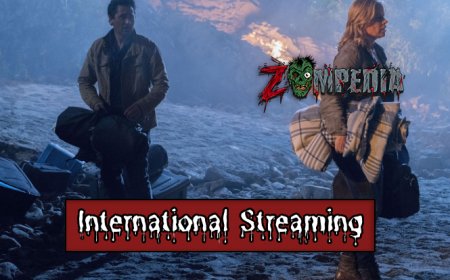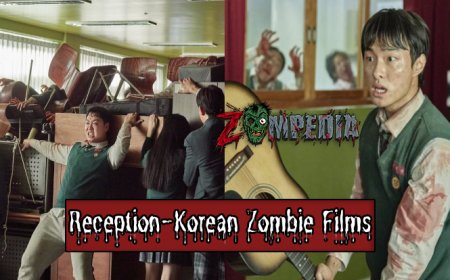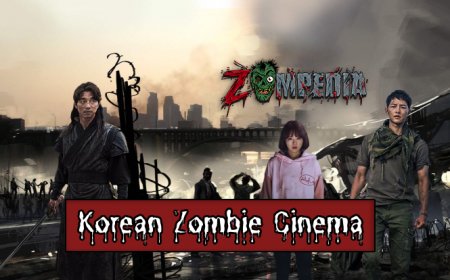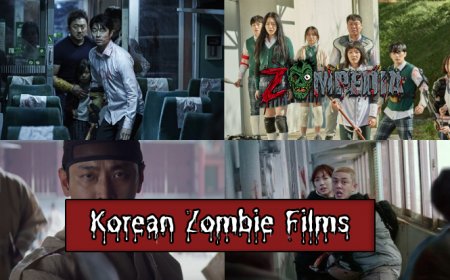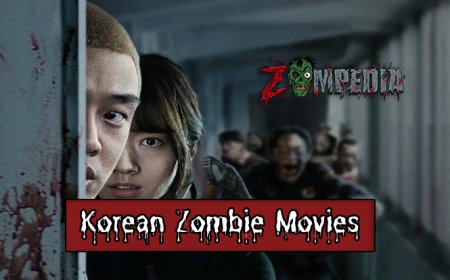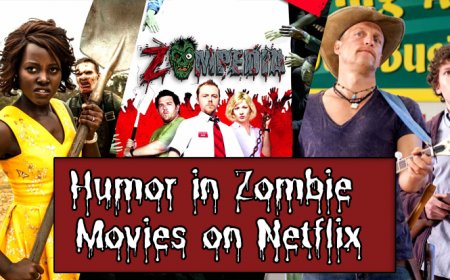International Impact of Korean Zombie Cinema
Discover how Korean zombie movies influenced the global genre, shaping audience perception and cinematic trends.
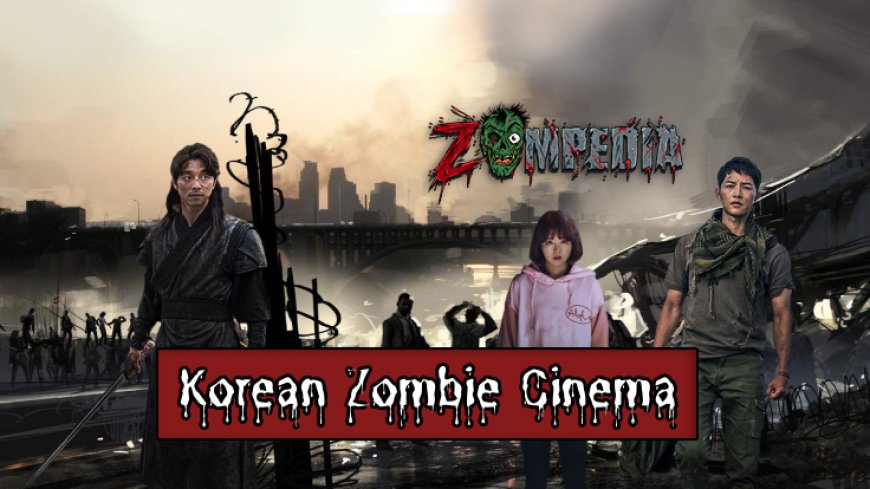
In the world of horror, Korean Zombie Cinema has made a significant international impact. The relentless march of the living dead across the silver screen has brought both chills and critical acclaim, as Korea's contribution to this hair-raising genre has resonated with audiences globally. Not only do these films provide pure undead thrills, but they also shed light on societal issues, making them potent parables of our time.
Unleashing the Undead: Korean Zombie Cinema
Korean Zombie Cinema has been successful in fearlessly exploring and breathing new life into the zombie genre. The films have not only been commercially successful, but their narratives have also been celebrated for their depth and creativity. Equal parts terrifying and entertaining, these spine-chilling sagas provide an edgy cinematic experience to viewers worldwide.
Table of Contents
- From Cult Classic to Blockbuster Excellence
- Zombies as Reflection of Societal Issues
- Global Reception and Influence
- Cinematic Innovations in Korean Zombie Films
- Why Horror Fans Love Korean Zombie Cinema
From Cult Classic to Blockbuster Excellence
Korean Zombie Cinema's journey from cult classics to internationally recognized blockbusters is nothing short of spectacular. The industry's first venture into the zombie genre, 'The Soul', dates back to 1981. Although rudimentary by modern standards, this movie laid the groundwork for future Korean zombie films, sparking a fascination with the undead that persists to this day. However, it wasn't until 2016 with the release of 'Train to Busan' that Korea truly made a splash on the global zombie cinema stage.

"Train to Busan", directed by Yeon Sang-Ho, was a game-changer. This adrenaline-pumping, thrill-a-minute spectacle of survival aboard a train packed with zombies turned into an international sensation. The movie’s brilliant blend of action, horror, and heart-tugging melodrama resonated with audiences and critics alike.
Some other Korean Zombie hits include:
- 'Seoul Station': An animated prequel to 'Train to Busan'
- 'Peninsula': A sequel to 'Train to Busan', shows a post-apocalyptic Korea overrun by the undead.
- '#Alive': A chilling tale of survival inside an apartment during a zombie outbreak.
Zombies as Reflection of Societal Issues
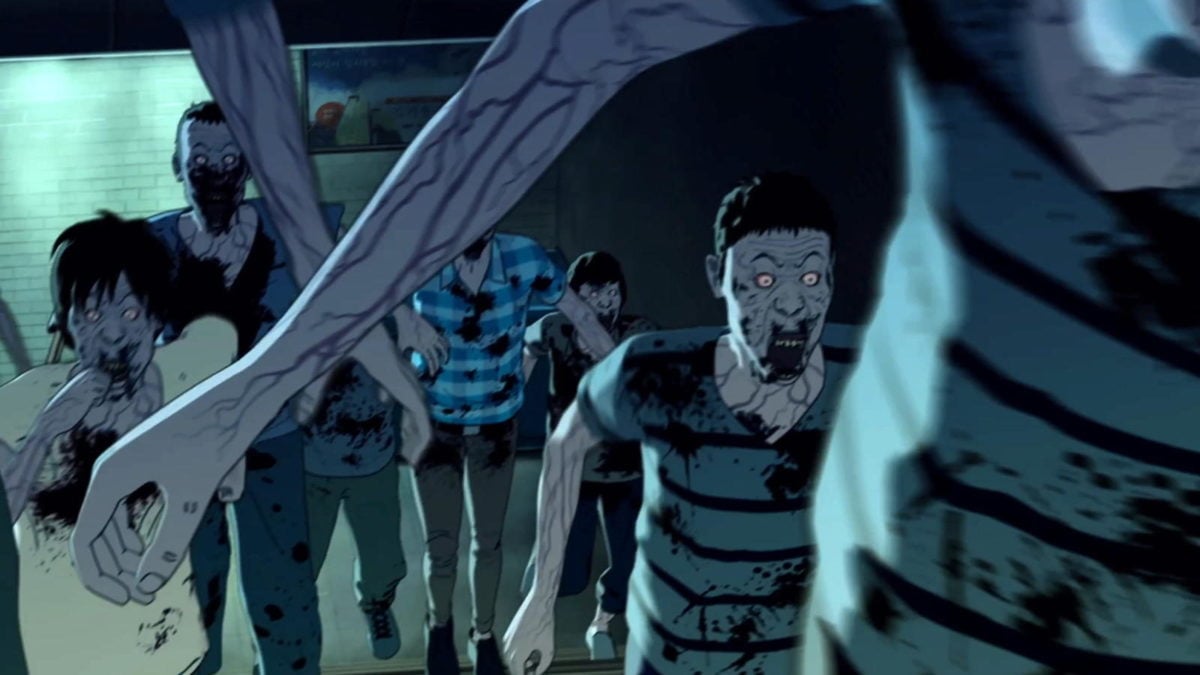
Korean Zombie Cinema serves as both an entertainning spectacle of the fantastical and a mirror to societal issues. The undead in these movies often serve as metaphors for wide-reaching concerns such as class struggle, government corruption, alienation, and dehumanization. It is this potent mix of the thrilling and thought-provoking, the fantastical and the real, that makes Korean zombie films truly stand apart.
In "Train to Busan", the zombies serve as a metaphor for societal alienation and class discrimination. Survivors from different walks of life are confined in a train, highlighting class dynamics and the disintegration of social codes in the face of survival.
"Zombies as Social Commentary"
Director Yeon Sang-ho, known for his socio-political commentary, has often spoken of his use of zombies to depict societal ills. He states, "The zombie is not the monster. The monster is the humans that these zombies were." For Yeon, the zombies serve more as tools to spotlight the monstrous aspects of humanity.
In 'Peninsula', the post-apocalyptic wasteland symbolizes the decay of moral order, with human survivors more dangerous than zombies. Here, the undead reflect the rot within society, as much as its literal post-apocalyptic decay.
Global Reception and Influence

The international impact of Korean Zombie Cinema cannot be overstated. Their films take a universal theme - the fear of the undead - and reshape it with potent storytelling and impressive cinematography. This combination of factors has led to worldwide acclaim, giving Korean zombie cinema a unique position in the genre.
The international box office success of "Train to Busan" opened the floodgates to the global market. The film garnered success in various Asian countries, the United States, and Europe, earning a whopping $93.1 million worldwide. It has been dubbed and subbed in various languages, further proving its worldwide appeal.
Moreover, Korean zombie cinema's narrative depth and societal commentary have inspired filmmakers worldwide. They have raised the bar, setting new expectations for what zombie cinema can achieve.
Cinematic Innovations in Korean Zombie Films
![Best 15 Korean Zombie Movies & Dramas To Watch [2022] | ShowBizClan](https://showbizclan.com/wp-content/uploads/2021/06/FLU-2013.jpg)
Korean film-makers are known for their innovation and creativity. Their unique approaches in storytelling, cinematography, and special effects have played a critical part in shaping the distinctive identity of Korean Zombie Cinema.
These film-makers straddle the line between horror and drama, seamlessly blending the two to deliver deeply emotional stories amidst frightening survival scenarios. The immersive cinematography and gripping narratives keep viewers glued to their seats, eagerly awaiting the fate of the characters. Furthermore, the use of high-quality special effects adds another layer of realism and terror to the films.
Stunning Special Effects
The gory, gut-churning special effects seen in Korean Zombie Cinema offer a significant contribution to the overall experience. The zombie makeup and the graphic portrayal of the undead, combined with intricate sound design, contribute to the bone-chilling horror atmosphere. Filmmakers have raised the special effects stakes, elevating the sensation of fear and tension to uncharted heights.
Why Horror Fans Love Korean Zombie Cinema

So, what makes Korean Zombie Cinema such a hit with horror enthusiasts worldwide? Here's a list of compelling reasons:
- Unique Storylines: From a zombie outbreak on a moving train to survivors grappling with isolation in an apartment complex, the stories offer fresh, unique perspectives on the zombie apocalypse theme.
- Charismatic Characters: One of the genre's strengths lies in its well-developed characters. Writers create empathetic characters that audiences can root for amidst all the chaos and carnage.
- Sophisticated Social Commentary: These movies adeptly weave socio-political commentary into the narrative. The underlying social criticism adds depth, making the films a thought-provoking experience beyond the horror.
- Cinematic Excellence: The careful attention to detail, innovative cinematography, and impressive special effects make these films a visual treat for horror enthusiasts.
Above all, the unique blend of horror, drama, and societal critique has helped Korean Zombie Cinema carve a distinct niche for itself in the international movie scene. The horror genre is no longer just about scares - it's about telling compelling stories, raising profound questions, and pushing the boundaries of audience expectations.
Conclusion
Undoubtedly, Korean Zombie Cinema has changed the face of the global zombie genre. Through its unique storytelling, astute social commentary, and cinematic innovations, it has transformed horror into an art form. As we await the next wave of undead nightmares from Korea, one thing is certain: horror fans worldwide will be ready for the ride, embracing every spine-tingling, pulse-racing moment that Korean Zombie Cinema has to offer.
What's Your Reaction?








































